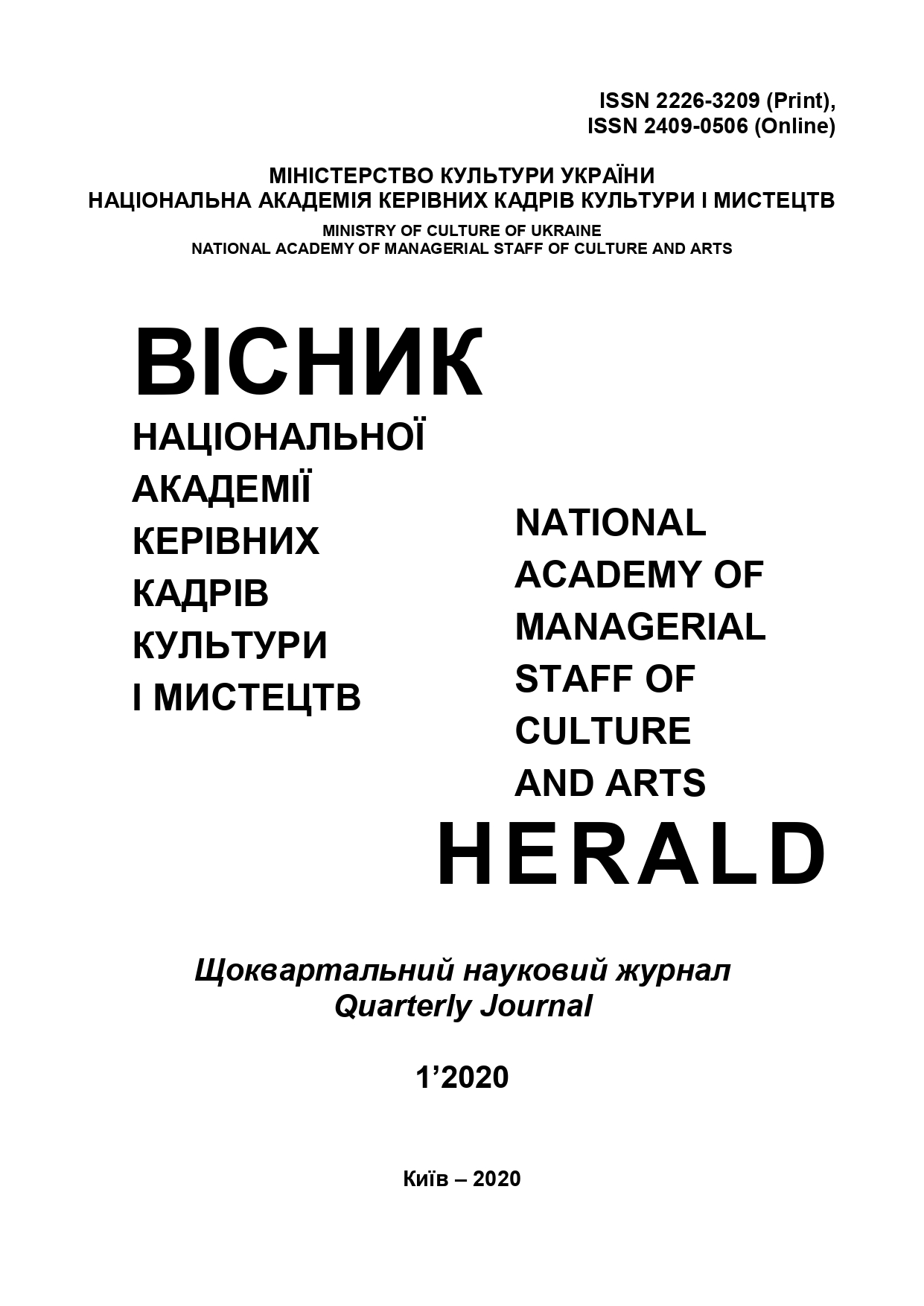Ancient Roman otium as a cultural practice and theoretical reflection
Ancient Roman otium as a cultural practice and theoretical reflection
Author(s): Iryna Vladislavovna PetrovaSubject(s): Cultural history, Ancient World, Sociology of Culture
Published by: Національна академія керівних кадрів культури і мистецтв
Keywords: culture; otium; intellectual and entertainment leisure activity; leisure infrastructure of leisure activity; leisure activity practices;
Summary/Abstract: The purpose of the article is to analyze the ancient Roman leisure activity as a theoretical reflection and cultural practice. The methodology of the research is reduced to the usage of historical and cultural approach that allows combining diachronic and synchronic methods to the study leisure activity as a polysemantic cultural phenomenon. Scientific Novelty. The topicality of the research is to identify and substantiate the conditions that led to the formation and development in ancient Roman intellectual and entertainment leisure activities, contemplative and active leisure activities, leisure activity as a means of self-development and leisure activity as a mass cultural practice. Conclusions. Leisure activity was perceived as a rest from work, a day dedicated to God, pleasure, safe for moral values (Virgiliy, Georgiki) in Republican Rome. As a result of the conquests in the East and the expansion of Greek culture, the value system of the Romans underwent significant changes, which was clearly manifested in the development of leisure activity in two interrelated “spheres”: spectacular and intellectual. Spectacular otium has become a powerful tool of political impact on masses, a method of mobilization and employment, and consequently reducing the content of leisure activity to “bread and sights”, “money and pleasure”, the gradual loss of the majority the ability to perceive leisure as a means of self-development, self-improvement and cultural creation. For members of the Roman intelligentsia leisure activity is, first of all, the luxury of companionship, intelligent conversation and literature classes. However, for the majority of the population, the Roman borrowing of otium graecum didn’t have an introspective, self-absorbed social character, freed from a sense of moral responsibility, it required only an external, leveled assessment, contrary to the individual and spiritual content of culture.
Journal: Вісник Національної академії керівних кадрів культури і мистецтв
- Issue Year: 2020
- Issue No: 1
- Page Range: 14-18
- Page Count: 5
- Language: English

